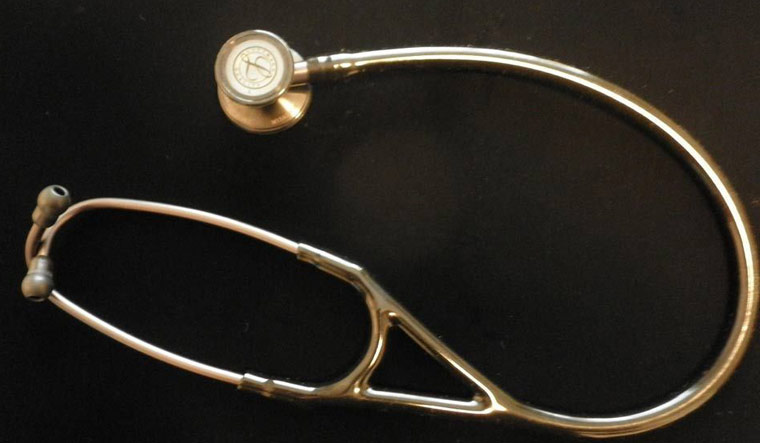No bridge course for AYUSH professionals to practice modern medicine, fee regulation for 50 per cent seats in private medical colleges, and more elected members from the doctors' fraternity—these are just a few of the recommendations of a parliamentary panel for the National Medical Commission Bill, 2017.
A little over two months after the proposed legislation was introduced in the Lok Sabha, and subsequently referred to a parliamentary standing committee to examine its contentious clauses, the panel has come out with a fresh set of recommendations.
After its introduction, the bill, designed by a four-member committee in the NITI Aayog, met with stiff opposition from sections of the medical fraternity such as the Indian Medical Association, who contended that the clause for allowing for a bridge course for AYUSH professionals to practice modern medicine would only legitimise "quackery".
In its report, the panel has taken their view into account, and recommended that the bridge course may not be made compulsory. It also says that healthcare professionals practicing without the “requisite qualifications” may attract “penal provisions”. However, taking into account the government's reason for recommending the bridge course—to address a severe shortage of doctors in rural areas—the panel has recommended that state governments “may implement measures” to enhance the capacity of the existing healthcare professionals including AYUSH practitioners, BSc (Nursing), BDS, and B Pharma.
The report also addresses other contentious issues in the bill such as the composition of the 25-member commission. On this, the panel has acknowledges that there's an inadequate representation of states/union territories, and notes their number is “too small”. The report also recommends increased representation from the medical fraternity—out of 25 members, only five will be elected members, and that "reflects lack of proper representation of the elected medical fraternity". Instead of five members, it recommends nine elected members. This was one of the key clauses that the IMA had been opposing, arguing that it would only lead to bureaucratic control over the medical fraternity.
The panel has also advocated for the total number of members of the commission to be increased from 25 to 29 members.
The panel has also raised a red flag on the presence of NITI Aayog in the NMC's search and selection committee and called it “a conflict of interest”. “The role of NITI Aayog is to chalk out plan and advise the government on policy matters. The committee, however, observes that NITI Aayog has been instrumental in drafting the NMC bill and hence its own presence in the search committee for appointment of chairperson and members of the commission tantamounts to conflict of interest.”
The issue of the National Licentiate Exam, which was opposed by doctors and students of medicine, has also been addressed in the report. It recommends the introduction of a common exit test for MBBS doctors, as an instrument of "quality assurance". "The licentiate examination should be integrated with the final year MBBS examination and be conducted at the state level", says the report. The final MBBS examination should be of a "common pattern within a particular state, initially due to the logistical constraints, and could be extended across the country".
The report calls for retaining existing fee regulatory mechanism for private medical colleges by the states to protect their rights to regulate fees, but also recommends that the fee charged by unregulated private medical colleges, the deemed universities and the deemed-to-be universities should be regulated at least for 50 per cent of their seats. The bill had provisioned for only 40 per cent of the seats for fee regulation, and several public health professionals and doctors had opposed it on the grounds that the clause left enough room for medical colleges to demand high fees for the rest of the seats.
The house panel's report also calls for all post-graduate education programmes—being conducted by the National Board of Examinations—to be brought under the purview of the commission for award of common degrees. Currently, two parallel systems of post graduate degrees exist in the country—MD, that is awarded by the MCI, and DNB, that is awarded by the NBE. Sections of DNB professionals have been demanding that the two systems be merged to curb discrimination between the two degrees.
The report also calls for the government to consider a "compulsory one-year rural posting for all doctors graduating out of medical schools" in the country, "subject to the condition that the requisite infrastructure facilities in terms of supporting staff, decent remuneration, necessary medical equipment and appropriate security are made available".


